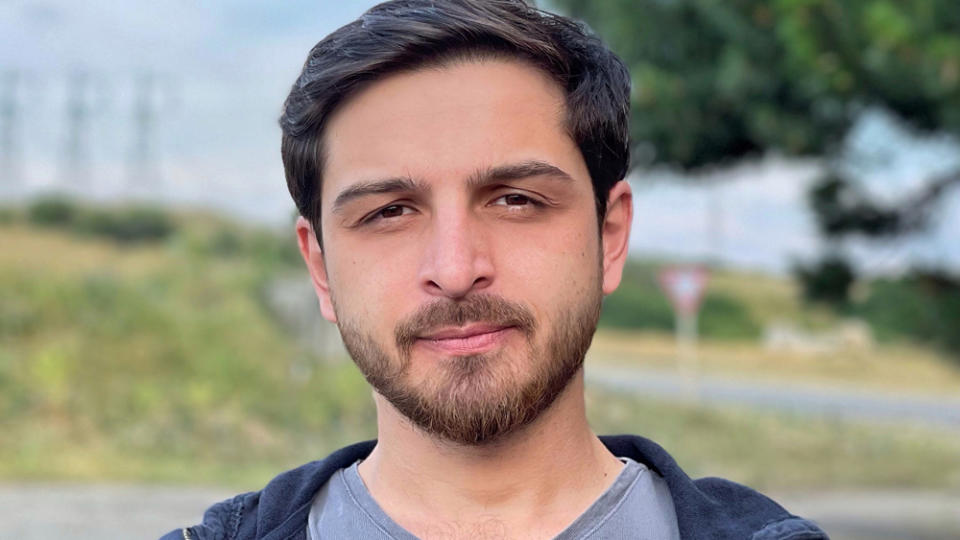‘We Will Fight for This Film,’ Say ‘A Room of My Own’ Team as They Brace for Backlash

Georgian-German drama “A Room of My Own,” about a young woman looking for a female roommate in Tbilisi after her personal life implodes, has its team thinking about future reactions in the Republic of Georgia. But director Ioseb “Soso” Bliadze and actress/co-writer Taki Mumladze are “ready” to address subjects considered controversial in their home country, they tell Variety, from domestic abuse to same-sex relationships.
“We will fight for this film,” says Bliadze, returning to Karlovy Vary Film Festival after his 2021 release “Otar’s Death.” Now, “A Room of My Own” – a Maisis Peri and Color of May production – will vie for the festival’s Crystal Globe award.
More from Variety
Silver Bear Winner Tomasz Wasilewski Takes on the Hardest Love of All in 'Fools'
'America' Director Ofir Raul Graizer on Seeking Out a 'Beacon of Light in This Crazy World'
“In our country, conservative voices are getting louder and louder, and our government is backing them up. That’s our answer to them.”

Courtesy of Color of May
In 2020, Levan Akin’s “And Then We Danced,” featuring a gay love story, became the subject of violent mass protests. The Georgian Orthodox Church denounced the film. Later, Sundance breakout documentary “Taming the Garden” also ran into problems, with Georgian Film Academy canceling its official screenings.
“Weird things are happening in our Ministry of Culture,” Bliadze sums it up drily.
“Perhaps our film will be censored as well, but we really want to show it in every village in Georgia. Our story is not just about women – we are willing to talk about everything that has to do with the current situation in our country.”
Echoing Virginia Woolf’s famous statement that “a woman must have money and a room of her own,” the film focuses on Mumladze’s Tina, who has never worked or been on her own. After her husband’s violent attack and her family’s subsequent rejection, she needs to change her life. Luckily, free-spirited Megi (Mariam Khundadze) is there to help.
“In our society, nobody tells you that as a woman you need to be independent,” says Mumladze.
“Nobody goes: ‘You must live your own life, have your own dreams.’ My favorite writer is Simone de Beauvoir, who wrote ‘The Second Sex.’ In Georgia, I certainly feel like a second sex. There is this idea that a woman who is alone is somehow incomplete. We grow up with this sentence in mind: ‘You are weak, so you should be with someone stronger.’ ”
“I became a father to a daughter four years ago and I really became interested in these topics. I became a feminist,” adds Bliadze, whose daughter also ended up acting in the film. But she wasn’t the only familiar face on set, with Bliadze and Mumladze’s friends cast in small roles: a necessity during the pandemic.
“Taki and Mariam used to live in this flat as roommates, also in real life. That’s why we were able to make this film with no budget – we already had a location! All the extras, they are our alcoholic friends who love to party. We told them: ‘We will get the booze, so just come on over and don’t look at the camera too much,’ ” he laughs.

Courtesy of Color of May
While Tina and Megi couldn’t be more different, they are both looking for their place in the world, points out Bliadze. They are changing each other and getting closer, eventually becoming lovers.
“We always knew it’s not a love story. It’s about Tina, who is searching for herself and experimenting with her sexuality,” he says, with Mumladze commenting on her character’s “repressed” relationship with her body.
“In countries like ours, the society tells women how they should have sex. Tina doesn’t know who she is, so she tries things. First with her husband, then her lover, then Megi. Our society is very judgmental and these are our naked bodies on screen. But it was our choice and it was important to do it. To me and Mariam, this sexual encounter felt like a manifesto.”
Regardless of what will happen with the local release, their intention is to stay in the country, they say.
“In the film, Megi is trying to get a visa to the U.S. That’s a big thing in Georgia: most young people, especially women and members of the LGBTQ+ community, just want to leave,” observes Bliadze. Stressing their plan is to try to change things instead, in any which way they can.
“We want to show that it’s possible. We show a different Tina by the end. I guess it could be viewed as a sad story, but it should also be inspiring.”
“For me, it’s a happy end,” adds Mumladze.
“She is alone, but she will grow and she will become stronger. She has survived.”
Best of Variety
Sign up for Variety’s Newsletter. For the latest news, follow us on Facebook, Twitter, and Instagram.


